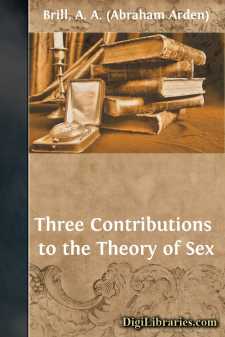Categories
- Antiques & Collectibles 13
- Architecture 36
- Art 48
- Bibles 22
- Biography & Autobiography 813
- Body, Mind & Spirit 142
- Business & Economics 28
- Children's Books 15
- Children's Fiction 12
- Computers 4
- Cooking 94
- Crafts & Hobbies 4
- Drama 346
- Education 46
- Family & Relationships 57
- Fiction 11828
- Games 19
- Gardening 17
- Health & Fitness 34
- History 1377
- House & Home 1
- Humor 147
- Juvenile Fiction 1873
- Juvenile Nonfiction 202
- Language Arts & Disciplines 88
- Law 16
- Literary Collections 686
- Literary Criticism 179
- Mathematics 13
- Medical 41
- Music 40
- Nature 179
- Non-Classifiable 1768
- Performing Arts 7
- Periodicals 1453
- Philosophy 64
- Photography 2
- Poetry 896
- Political Science 203
- Psychology 42
- Reference 154
- Religion 513
- Science 126
- Self-Help 84
- Social Science 81
- Sports & Recreation 34
- Study Aids 3
- Technology & Engineering 59
- Transportation 23
- Travel 463
- True Crime 29
A. A. (Abraham Arden) Brill
Abraham Arden Brill (1874–1948) was an American psychiatrist and psychoanalyst, known for introducing Freudian psychoanalysis to the United States. He translated several of Sigmund Freud's key works into English, including "The Interpretation of Dreams" and "Three Contributions to the Theory of Sex." Brill was also the author of his own influential books, such as "Basic Principles of Psychoanalysis" and "Psychoanalysis: Its Theories and Practical Application." As a prominent figure in early American psychiatry, Brill played a significant role in establishing psychoanalysis as a respected field of study in the U.S.
Author's Books:
Sort by:
W psychoanalytic investigation, which usually contents itself with frail human material, approaches the great personages of humanity, it is not impelled to it by motives which are often attributed to it by laymen. It does not strive "to blacken the radiant and to drag the sublime into the mire"; it finds no satisfaction in diminishing the distance between the perfection of the great and the...
more...
I The fact of sexual need in man and animal is expressed in biology by the assumption of a "sexual impulse." This impulse is made analogous to the impulse of taking nourishment, and to hunger. The sexual expression corresponding to hunger not being found colloquilly, science uses the expression "libido." Popular conception makes definite assumptions concerning the nature and qualities...
more...



